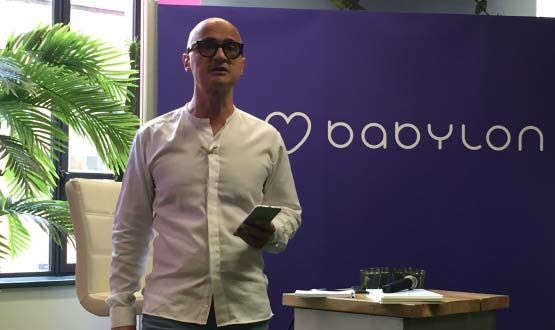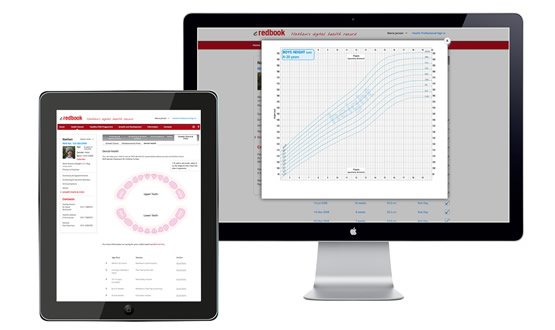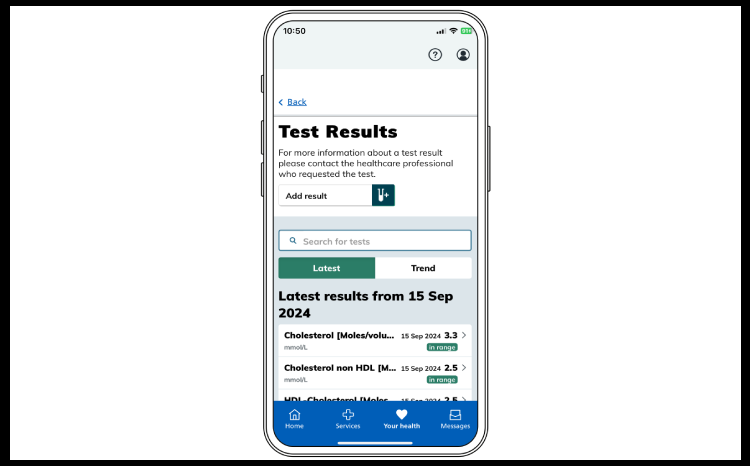Babylon Health app will be among first on NHS “digital tool” library

Five apps will help launch NHS’s new digital tool library, including the private video consultation on-demand service Babylon Health.
A presentation to the National Information Board last month reveals that five “demonstrator apps” will be launched in September this year.
Visitors to NHS.uk, the successor to the NHS Choices website that will host the digital tool library, will be able to “navigate to local demonstrators of care specific enabled apps”.
These apps include:
- Babylon Health
- Patient Knows Best
- eRedbook (developed by Sitekit)
- An Alzheimer’s app developed by Salesforce
- An unspecified end of life personal health record
NHS Digital are also considering a further three apps for inclusion, including “digital sleep improvement” app Sleepio, patient data capture app uMotif, and appointment booking app Zesty.
Digital Health News reported last week that a beta version of the latest attempt at an NHS digital tool or app library will go live at the end of March.
An NHS Digital spokeswoman told Digital Health News no further details would be released about the demonstrator apps until at least next month, when a beta NHS.uk and digital tools library are scheduled to launch.
Most of the named app companies approached by Digital Health News for this story, confirmed they had been some early talks with NHS Digital but their app had not yet been endorsed.
A Babylon Health spokeswoman said the company had “yet to receive official notification that Babylon has been selected as a demonstrator app for the new library” and declined to comment further.

The Babylon app provides clinical video consultation, largely GPs, on demand through your phone for a monthly subscription fee. However, recently the company has been working with a small group of GP practices to offer the service for free and last year also released a triage chatbot function.
Digital Health News first reported that Babylon Health, a private company based in London, was seeking closer ties to the NHS in September.
In January, it was announced that Babylon would be developing a NHS 111 triage app in partnership with North Central London CCGs.
Patients Know Best, a personal patient-controlled health record app, is already widely used in the NHS, although often with specific cohorts of patients.
Lloyd Humphreys, the company’s vice president of business development, said it had yet to be confirmed that company would be part of app library.
“But PKB is delighted to be involved in any NHS Digital or NHS England programme, including the app library.”
The eRedbook, an electronic version of the “red book” given to UK parent to record their child’s health, has been in development for two years and will be rolled out across London from April. It is the only digital children health record to be endorsed by the Royal College of Paediatrics and Child Health, having passed clinical assurance and standards.
Daniel Moulin, eRedbook director, said he had done some workshops with NHS Digital about “dovetailing into its work stream” but the app had also not yet been formally approved.
The apps form part of broader push from NHS Digital and NHS England to get more people managing and engaging with their health online, as outlined in the Personalised Health and Care 2020 framework.

However, digital patient-facing services have been promised before, only to be quietly dropped. NHS Choices was once touted to include many of features now promised for NHS.uk, such as a personal health record.
An NHS app library, now rebranded digital tool library to cover wearables, has also previously been attempted.
That store closed in October 2015, after a study found many of the apps did not adequately protect patient data.
NHS digital leaders will be hoping a more rigorous “four-stage endorsement” model will help improve the quality and security of apps this time round.




5 Comments
All hospitals have a duty of care to ensure any systems they use are compliant with the necessary IG and Clinical Safety standards. A national process would hopefully take care of the bulk of this assuming it is fit for purpose and isn’t too onerous for suppliers. This would also allow for kite marking / rating system which isn’t possible with the current model. Even when a national process comes into being each trust will have to review the app in the local context to ensure their policies, procedures, etc. are all in alignment.
If the apps are being used today, they will have been through some sort of local process, but this can vary quite a lot between Trusts and in my experience focusses more on the IG/IT than it does on the clinical aspect. That said there are clearly defined rules for what a Trust should do from a clinical perspective.
Hi Chris, Patients Know Best (where I work) is available free of charge to the patients of PKB’s NHS customers. There is no paid version.
Thank you for your reply Mohammed.
Are all the apps being approved already purchased by NHS organisations? If so surely they have already been assessed at least by the organisation purchasing them. It may be reassuring to those organisations and others considering buying them but we also need to be encouraging innovation and free apps developed by/for the NHS for free for the NHS but possibly sold to private and international health providers?
Which of these NHS approved apps are available now free for NHS patients? Paid for apps should pay NHS England a proportion of their profits or for approval and other smaller developers perhaps sponsored by NHS England if and whilst they are best of the me toos.
Comments are closed.